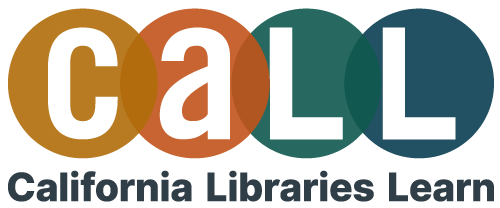Program Type:
Online CourseProgram Description
Event Details
This course is now full. Join the waitlist.
November 5 - December 23, 2024 | Six-week course (with a one-week break)
Time commitment: 2.5 hours per week
There’s agreement everywhere that AI literacy is necessary. We need hands-on time with the tools, and we need to conduct experiments in order to develop the most effective policies and practices. But many library staff have not yet had enough time and support to devote to this learning.
In this six-week course*, you’ll get hands-on experience with generative AI, understand the technology, and understand ethical use. You’ll develop methods for staying current and avoiding hype about AI. And you’ll think deeply about how we can align generative AI with the values of the library profession.
By the end of the course learners will:
- Identify and describe the underlying technologies that power generative AI
- Select the best model for your task and craft effective prompts for them.
- Explain ethical issues, such as bias, deepfakes, and privacy.
- Effectively use data analysis, voice assistants, and computer vision.
- Use multimedia AI tools to generate images, video, music, and speech.
- Develop a list of reliable sources to follow for staying current.
Course Description: The instructor will provide weekly recorded video lectures on each of the covered topics. Additionally, learners will participate in activities and discussion forums, with an opportunity to share their experiences. The instructor will provide resources, best practices, and guided hands-on assignments. This course is asynchronous, so it’s available to learners from any time zone.
*Please note, that although this course contains six-weeks of content, there is a one-week break from November 26 – December 2 for the Thanksgiving holiday.
Course Outline: When you log in to the Infopeople online learning site, you will see weekly modules with these topics:
- Week 1: Understanding Generative AI Technology
- Defining terms
- Discriminative vs generative AI
- Using language models appropriately
- Tools that incorporate AI for searching
- Open-source vs proprietary AI models
- Week 2: Prompting for Language Models
- Language model for specific tasks
- Craft effective prompts
- Implement privacy protection
- Build a simple, specialized chatbot
- Week 3: Understanding Ethical Issues
- Copyright and fair use
- Bias issues
- Privacy issues
- Labor and climate issues
- Week 4: Using Multimodal Features
- Spreadsheets, data, charts and graphs
- Computer vision
- Real-time translation of video and audio
- AI voice assistants
- AI-based transcription tools
- Week 5: Creating Multimedia with Generative AI
- AI media generation tools
- Identify AI-generated images
- Prompt to avoid biased outputs
- Copyright issues
- Beneficial vs unethical uses
- Week 6: Staying Current and Avoiding the Hype
- Understanding current fears about AI
- Why mainstream news stories about AI may be misleading or untrue
- Assess the accuracy of AI news stories
- Sources for staying current
Time Required: To complete this course, you can expect to spend 2½ hours per week,for a total of fifteen course hours. Although you can work on each module at your own pace, at any hour of the day or night, it is recommended that you complete each week's work within that week to stay in sync with other learners.
Who Should Take This Course: Any library staff member who wants to get more hands-on experience with generative AI and learn how we can align generative AI with the values of the library profession.
Learner Requirements: You will need to create free accounts on several AI systems such as ChatGPT, Microsoft Copilot, Claude, and Perplexity. Links to the necessary accounts will be provided in the course.
Presenters: Nicole Hennig
This webinar is presented by Infopeople.
